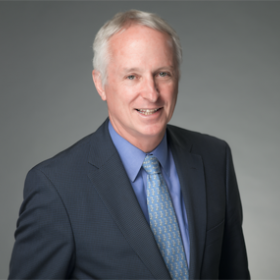
Memories of Mosul
Early in 2006, I volunteered to head the first Provincial Reconstruction Team in Iraq. As an American diplomat then serving in Europe, I was hardly an expert in overseeing development in a combat zone. But I believed, along with others, that it was unfair (and ultimately, counterproductive) to ask the U.S. military to lead the task of nation-building in Iraq. Whatever the merits of the U.S. incursion there, we the civilians owed it to our colleagues in uniform to step forward and become a practitioner of applied diplomacy on the ground.
I headed a team of 50, dedicated to job creation, promotion of good governance, infrastructure development, and rule of law. We sought to protect the extraordinary historical heritage of Mosul: its architecture, its markets, its meeting places. We worked with dedicated Iraqi colleagues in what was then a diverse and largely undamaged and yet crumbling city, trying to find common ground among Sunni Arabs, Kurds, various Christian and other minority groups. I remember most of all a cultured, wise, and modest engineer named Omar, who gently but firmly led efforts to rebuild bridges that had decayed under the sanctions of the Saddam Hussein era or redesign roads to meet new needs of citizens. There was little, if any, tradition of democratic governance at the provincial level at that time. But Iraq was a place of sophisticated persons like Omar, well trained and hard working, and Mosul, the second largest city in Iraq, was home to many of them.
In the background was the violence: the bloody fight for Tal Afar, west of Mosul. There were attacks in the countryside, in places like Sinjar, now famous for the predatory behavior of Daesh. There were sullen resentments, usually between the mainly Arab inhabitants west of the Tigris in the old city (some of them deeply hostile to us) and the well organized Kurds on the east bank (usually more supportive of our efforts). The provincial governor, an Arab who sought Kurdish backing, survived any number of assassination attempts, though many of his family members perished. Things were especially tense after the bombing of the Golden Mosque in Samarra that year, but we pushed ahead and sought to make a difference for the people of Mosul.
I departed from Mosul before the "surge" of 2007. Unfortunately I've lost track of former colleagues like Omar. Now, after the capture of the city two years ago by Daesh, I can only hope that he made his way to Irbil or Baghdad. But in the charged politics of Iraq these days, I wonder if a thoughtful, secular Sunni professional can find his place in the main city of the Kurdish region or in the now overwhelmingly Shia capital. Still, I have hopes that he's safe, and the monuments of Mosul still stand, despite the terrible stories of the dynamiting of the tomb of Jonah by Daesh.
Now the battle to recapture Mosul from Daesh will begin this month. I think of the scenes from Aleppo, another once beautiful ancient metropolis in the region. I fear that the fighting will be bitter, and that, once again, it will be the people caught in the crossfire who will suffer worst. I fear that any prospect for partnership, even under the most difficult of circumstances a decade ago, that we found with Iraqi citizens of talent and goodwill will disappear.
The liberation of Mosul will be a major step in the fight against Daesh. But I do hope that the efforts of EWI and other global institutions will lessen the chances that such a potentially awful battle will need to take place. In our determination to prevent conflict before it starts, it's sometimes necessary to take an unblinking look at what happens when we fail: I think of my friends in Mosul and hope that, from their suffering, we learn anew the patience, character, and hope so necessary to our own work.

